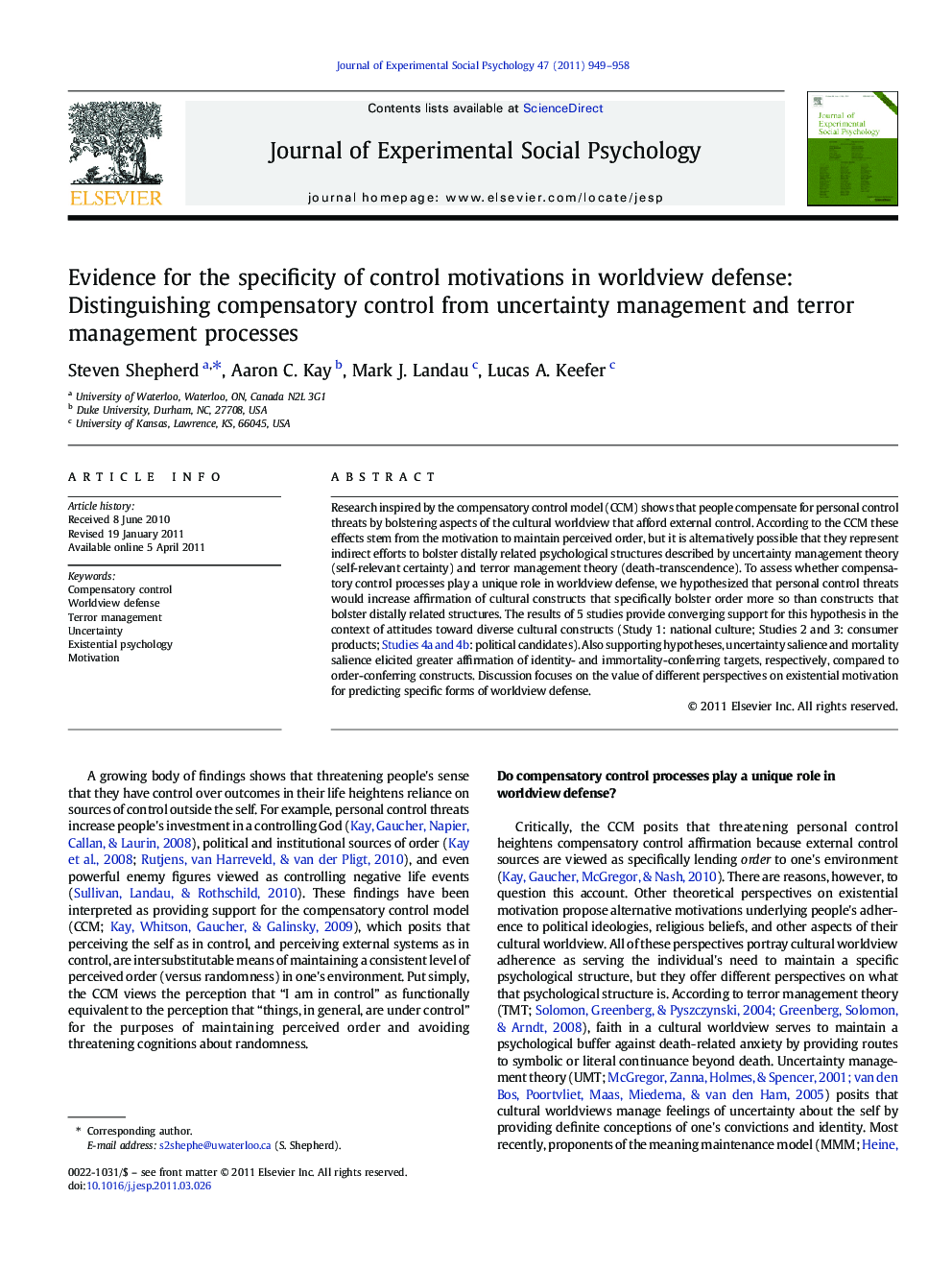| کد مقاله | کد نشریه | سال انتشار | مقاله انگلیسی | نسخه تمام متن |
|---|---|---|---|---|
| 948159 | 926457 | 2011 | 10 صفحه PDF | دانلود رایگان |

Research inspired by the compensatory control model (CCM) shows that people compensate for personal control threats by bolstering aspects of the cultural worldview that afford external control. According to the CCM these effects stem from the motivation to maintain perceived order, but it is alternatively possible that they represent indirect efforts to bolster distally related psychological structures described by uncertainty management theory (self-relevant certainty) and terror management theory (death-transcendence). To assess whether compensatory control processes play a unique role in worldview defense, we hypothesized that personal control threats would increase affirmation of cultural constructs that specifically bolster order more so than constructs that bolster distally related structures. The results of 5 studies provide converging support for this hypothesis in the context of attitudes toward diverse cultural constructs (Study 1: national culture; Studies 2 and 3: consumer products; and : political candidates). Also supporting hypotheses, uncertainty salience and mortality salience elicited greater affirmation of identity- and immortality-conferring targets, respectively, compared to order-conferring constructs. Discussion focuses on the value of different perspectives on existential motivation for predicting specific forms of worldview defense.
Journal: Journal of Experimental Social Psychology - Volume 47, Issue 5, September 2011, Pages 949–958